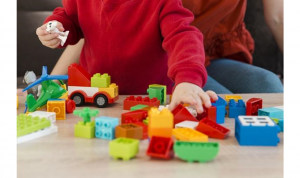Top 5 toys for autistic children
The article below of the top 5 toys for autistic children offers families practical ideas and tips

When choosing a toy for an autistic child, it’s important to consider their level of sensory sensitiveness. Children on the spectrum often have sensory issues. Some have hypersensitivities while others have hyposensitivities. Their level of sensitivities affects how they process their surroundings and how they react to stimuli.
The right toys can help kids on the spectrum develop their senses, improve their focus, learn social and language skills, and enhance their motor skills. Fortunately, these toys are now more accessible for parents everywhere, given how easy it is to open an online store. With just a few clicks, you can conveniently buy appropriate toys for your child. If you’re looking for toys for your child, here are a few you can start with.
Sensory Toys
Since many children with autism spectrum disorder (ASD) have sensory issues, toys like sensory mats, chew toys, and rainmaker toys can be a great help for developing their five senses. When choosing the right sensory toys for your child, it’s vital to consider their sensitivities. Do they have hypersensitivities or hyposensitivities? Are they inclined to visual toys, auditory toys, or tactile ones?
Some children may be extremely sensitive to texture or sound, so be careful with selecting toys made of cloth and items that make unpredictable sounds or noise at certain sound frequencies. Go for toys that won’t break when dropped in case your child has a meltdown.
Puzzles

Jigsaw puzzles, blocks, and Rubik’s cube can provide autistic children with a satisfying tactile sensation. Puzzle toys can also help improve their focus as these let them center their attention on one activity and hone their fine motor skills as they practice manipulating objects. They may also enjoy the bright colors in the pictures that form when you complete a jigsaw puzzle.
Jigsaw puzzles can offer lots of benefits to children on the spectrum. These puzzle toys can help teach problem-solving, improve memory, enhance attention span, teach sorting skills, promote patience and persistence, and provide endless entertainment. When choosing a jigsaw puzzle, make sure to pick one that is not too easy or too hard to solve. For first-timers, start with jigsaw puzzles with 24 large pieces.
LEGO
LEGO blocks are popular toys for both autistic and the neurotypical kids. Other than providing a satisfying tactile sensation, LEGO toys can help children on the spectrum with developing fine motor skills, visual perceptual and visual motor skills, cognitive skills, independence, and imagination.
Playing with LEGO blocks with others is also good for teaching kids social and communication skills. If your child particularly enjoys playing with these toys, there are LEGO clubs in local community centers that organize after-school, LEGO-related activities for members. Look for one in your area, and let your child sign up for their activities.
Fidget Spinners
Chances are you’ve already encountered and played with a fidget spinner before. These toys became a huge craze all over the world a few years ago. Originally, fidget spinners were marketed to people with attention deficit hyperactivity disorder, anxiety, or autism. These small, ball-bearing devices, which you can rotate between your fingers, are an excellent source of distraction, and a good tool for promoting focus.
Fidget spinners are sensory toys, which means they can offer satisfying tactile sensations to kids with sensory-processing issues. They can also offer entertainment, reduce stress and anxiety, and promote a sense of calm. An alternative to fidget spinners is a fidget cube, which is a box-shaped toy that has various buttons and dials that you can play with.
Your Time

Letting your child experience other play activities that don’t involve toys is important to their development. Give your time to encourage them to participate in active play and other activities, like visiting museums and zoos and joining clubs.
Autistic children enjoy playing, but it’s important to note that ASD affects how they play. It’s common to see them playing with only a few toys, playing alone, or playing in a repetitive way. This does not mean that they cannot learn to develop the skills needed for play. You can teach your autistic child these skills or facilitate activities, like playdates and outings, to help them develop play skills, social skills, and communication skills.
If you’re not sure where to start, there are many professionals who can provide advice to help parents and guardians connect with their kids who have ASD. You can also work with your child’s instructors or special needs teachers and community centers to learn how to organize play activities that are safe, entertaining, and educational for your child.
Photo URLs:
https://www.pexels.com/photo/selective-focus-photography-of-toddler-in-front-of-glass-1620675/
https://www.freepik.com/free-photo/kid-playing-with-toy-cars_2231534.htm
https://www.freepik.com/free-photo/close-up-mom-son-playing_6881477.htm
@MelissaPage90
Editor’s note
Our readers might also be interested in reading the article below –
‘These Toys Are Perfect For Kids With Sensory Processing Disorders’ by Playlearn
__________________________________________________



